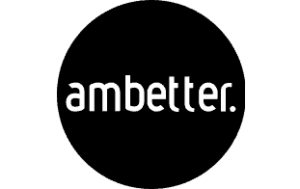Imagine you’re at the grocery store shopping for things to make your favorite meal. Now imagine getting home and realizing half of the ingredients have mold on them.
One of the most annoying things about love is how little choice we seem to have in who attracts us, or why. We can plan carefully for the right traits (kind, funny, intelligent), envision our lives (historic bungalow in a shanty sea town in Maine or a humble cottage in the Scottish Highlands, because we’re flexible), and put ourselves in environments where our ideal partner would be (the beach, a dog park, or a grand estate in Pemberley that’s been in their illustrious family for 15 generations)—and still end up falling for the wrong person. Damn the dynamism that makes mankind so hard to pin down in character.

Why do we swipe past good, stable options in favor of people who will absolutely torch us? Is it who we are as people, or what we learned growing up? Psychology 101 tell us: A lil bit of column A, a lil bit of column B.
Better the Devil You Know
Love feels “right” when it feels familiar. And for many of us, “familiar” means chaotic.
If your dad was cold or your mom was controlling, that dynamic got wired in as “normal.” Now, however miserable it makes you, your radar starts pinging hardest for people who make you feel the same way. Safe? Steady? Emotionally available? That’s weird. Wrong, even.
It’s not that we want abuse, neglect, or dismissal. It’s that somewhere in us, that treatment registers as the only semblance of love we recognize. And so we repeat the story we saw played out growing up. Not because it’s what we want, but because it’s familiar. An unfortunate tendency we have as humans is to assume that we are better off sticking with the devil we know. Enduring something miserable but predictable feels easier than risking something new and not getting it.
Bringing a Knife to a Pillow Fight
Hurt people hurt people. People who were humiliated as kids end up humiliating others as adults. People who were abandoned end up doing the abandoning. At some point your brain decides it’s better to be the one holding the knife than the one bleeding.
Terrible logic, but our instincts aren’t based on logic. Unless we can learn to notice the distorted patterns that trap us in cycles of unhappiness, we’ll keep flipping the script back and forth: victim one day, saboteur the next.
No Hot, French Pastry Chef for You

Sometimes we throw the baby out with the bathwater. If your dad was belittling but loved to bake cakes—guess what? Now, bakers are dangerous because they might belittle you the same way your father did. No hot, French pastry chef for you. Mom was affectionate but uptight about sex? Now affection itself feels like judgment. No hot, French pastry chef for you. Trauma doesn’t just chain us to old pain; it robs us of the good stuff too (Like hot, French pastry chefs).
If You Want a New Ending, Stop Watching the Same Performance
You’ve seen this play before and you didn’t like the ending. So stop buying tickets. Go to a different show. Start asking yourself uncomfortable questions like:
-
-
-
-
-
- Who first taught me what love feels like?
- Do I push away traits I actually need because they remind me of someone who failed me?
- Am I choosing partners who recreate the same problems I’ve already lived through?
- Am I stuck in the same dynamics that disappointed me before?
-
-
-
-
Reflection like this is work, and you may not like what you find. That’s why it helps to have a professional who can push back, challenge your blind spots, and keep you from slipping into old excuses. Therapy and treatment give you the structure to see your patterns clearly, call yourself out, and start choosing differently.
At Recovery Unplugged, clients do this every day — in residential treatment, outpatient care, and virtual programs. Meaningful healing happens when you can finally tell the difference between what poisons you and what sustains you. Recipes made with bad ingredients will always make you sick. Recovery means learning how to shop better — to leave the poison behind and finally pick what sustains you.




















